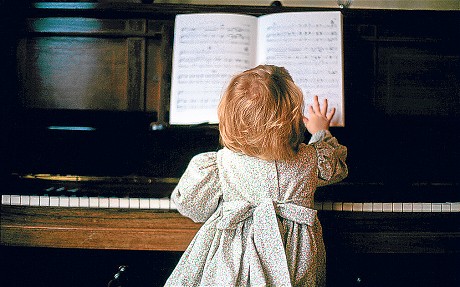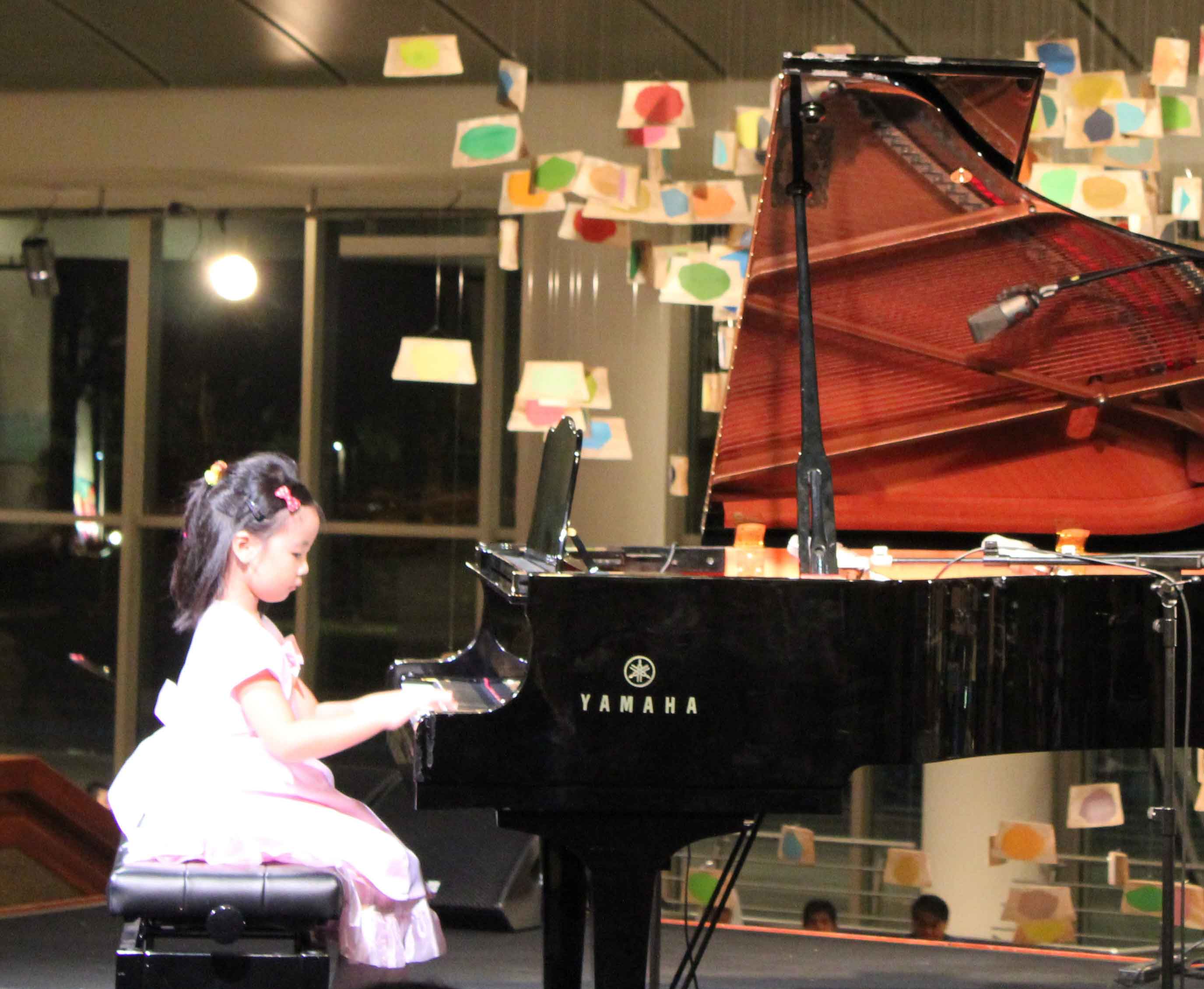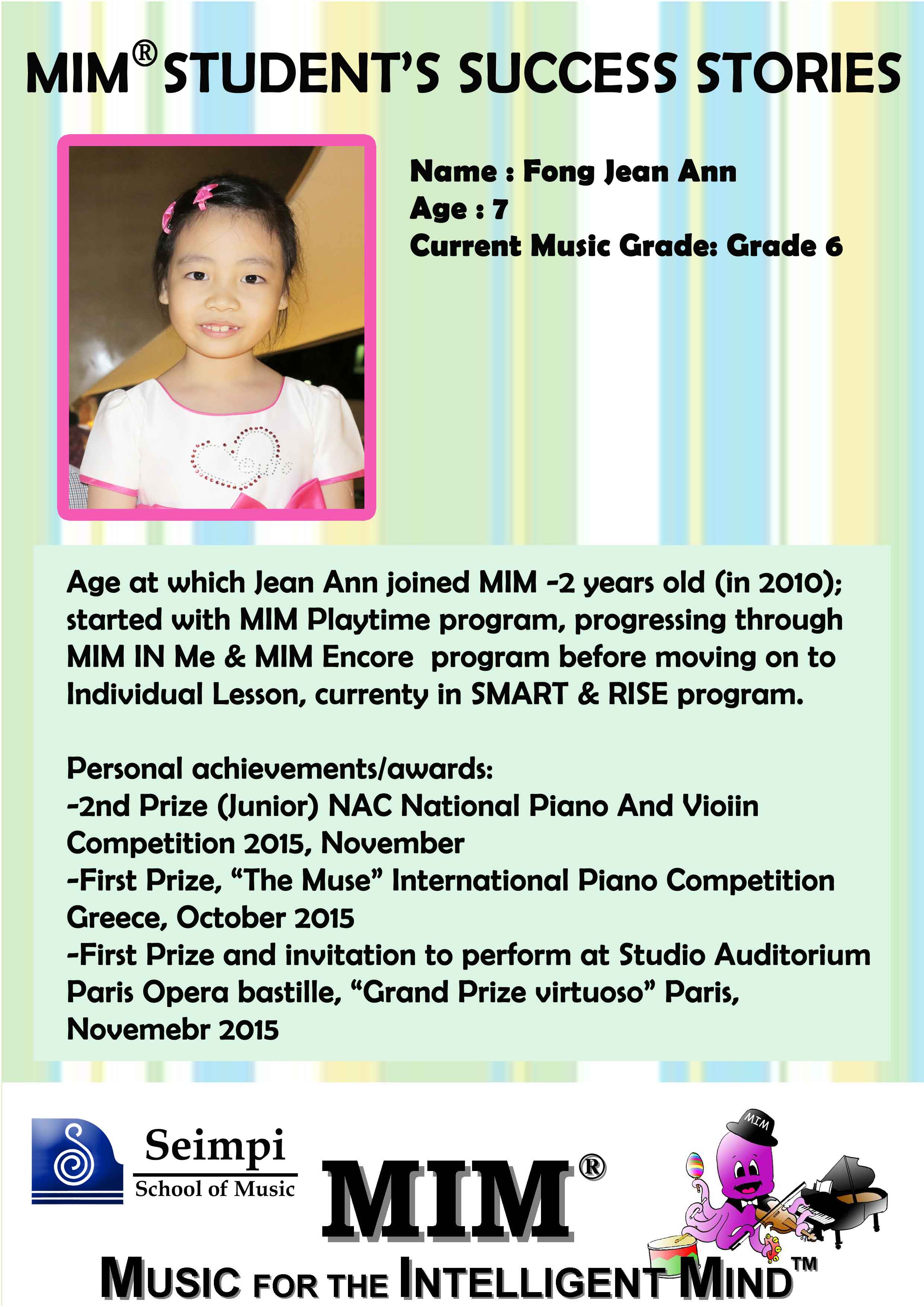Blog
Memorizing Music

Memorizing is a necessary skill to enhance learning and retention. For children taking instrumental music lessons, memorizing their music will help to improve memory giving confidence in the child’s ability to remember. Young children should always be encouraged to memorize all their repertoire pieces. Compared to pieces learnt at an older age, pieces memorized in the early years are practically never forgotten. And, even if forgotten, are most easily recalled.
Walter Gieseking, a well-known 20th century pianist, was renowned to be able to memorize entire piano concert pieces whilst on a plane flight. Did Gieseking do impossible and magical tricks ? Definitely not ! A vast majority of children we know probably had a hard time memorizing music. Memorizing should not be difficult or frustrating using the right approach. Follow some simple steps and put memory slips at bay. Not convinced ? Try these memory techniques.
Look at Music as a whole
Before beginning to play, firstly, study the piece. Ask the child about the key signature, time-signature, dynamics, any striking features ? Visualize the piece through silent reading. The child will soon discover each piece as not merely a series of notes to memorize but as a coherent musical structure to understand.
Look for Associations
Find patterns in the piece of music. They are everywhere in music. Find them and label them. Look for groups of notes that make harmonic sense or pattern, a scale-like structure, an arpeggio. and commit them to memory.
Memorize right the first time
Always memorize everything right the first time. By the time you get to the end of the piece, it will be completely memorized and performance ready. There will never be a need to go back and add dynamics, or anything else. Because of this the child will find learning music very much faster than before.
Play very slowly
An important way to reinforce memory is, at the initial stage to play very slowly, less than half speed. Slow speed reduces the dependence on hand memory and supplant it with "real memory". The stimulation from the piano sound is also absorbed internally. Always be at least a split second ahead of the music . As a general rule, think about one bar ahead. Play it right the first time, complete with all the dynamics and other articulations.
Break it up into Small Sections
If the music is a little long, it's always helpful to divide it into manageable sections. Memorize small clusters at a time. Brian Specialists call this “chunking”. Look for an interesting phrase or a couple of measures. Remember again to look for patterns and associations within that phrase.
Repeat
Repeat a few times. Learning by repetition helps to form connection of synapses in brain cells.
Sleep
If the child gets bored repeating a section over and over again, move on. Sleep over it ! Sleep is the next best thing for memory retention. Do the same thing again the next time. Too many children waste hours practicing sections that will never get any better at one sitting . By sleeping our brain solidifies everything we tried to memorize. Specialists call this consolidation.
Naps
Studies also show that naps can have a similar effect on memory as a good sleep. Memorizing something followed by a quick nap may be very effective. The nap in between can replace the consolidation that is needed with sleep.
Mind Maps
For the more innovative, making a colorful mind chart with the notations can help to concretize memorization. A little creativity goes a long way towards making the task fun and rewarding.
Conclusion
Admittedly, these activities do take a lot of time and it is easy to lose momentum and to stop memorizing. Following a few simple routine provides greater continuity besides establishing good memorizing habits.
Written by Mr Thomas Tan
Master Trainer and Lecturer
MIM Students Success Stories (4)

MIM Students Success Stories 4
We continue our feature on students whose dedication and discipline have brought them success in their musical journey.
Today we present Fong Jean Ann, who started her musical journey at age 2, currently in the SMART and RISE program of the school.

Below are the pieces she played in the NAC National Piano & Violin Competition 2015 Finals:
To view in mobile devices, click here.
To view in mobile devices, click here.
To view in mobile devices, click here.
To view in mobile devices, click here.
To view in mobile devices, click here.
Here are some sharing by Mr Fong on Jean Ann's musical jorney :
1. Jean Ann has started with Playtime classes with Seimpi since she was 2 years old. In what ways has MIM helped her to grow into the budding musician she is today?
Mr Fong: As a toddler, Jean Ann enjoyed going for MIM lessons with Teacher Shiely. She loved the fun activities, meddling with different musical instruments and swaying to the music. It was fun to have other children participating as a group, dancing and singing together. She learned basic music theory through flash cards and began to show her interest and enthusiasm in playing simple pieces when digital keyboard was introduced. She would listen attentively to her elder sister Jean Ying playing her pieces, and started playing the same tune without looking at the scores.
2. Can you tell us about Jean Ann's experience participating in competitions? How does she feel about competing with others and performing in front of a crowd?
Mr Fong: Jean Ann experienced her first piano competition when she participated in MIM Festival in 2013. She was really nervous when she looked at the big stage and the large audience sitting in the performance venue. However, once she sat in front of the piano, she could forget her fears and was able to play naturally. Since then, she has participated in various festivals and competitions, both local and overseas. She would share with us that she's both excited and nervous. It helps that her elder sister Jean Ying is always by her side, as she has a positive influence on Jean Ann, spurring her on to put in her best in every performance. The National Piano and Violin Competition 2015 is by far the toughest for Jean Ann as she has to prepare a repertoire that clocks a minimum duration of 15 minutes. It's a test on her stamina and her state of mind, as she needs to adjust her mood and technique of playing as she runs through the sequence of 6 pieces from different periods. Moreover, she was competing in the Junior Category, meant for children aged 11 years and below. She was the youngest semi-finalist and finalist at the competition. The dedication of Teacher Rado and his confidence in her ability helped to put her at ease. Competitions aside, Jean Ann enjoys watching other children perform during such occasions and she will pick out pieces that interest her and would want us to check with Teacher Rado if she can also learn to play them.
3. Can you let us know how Jean Ann usually practices at home? How much time does she spend on piano daily and how she balances her practice time with her other commitments?
Jean Ann practices between 1 to 2 hours a day, clocking more hours when her practical exam, performances or competitions are near. Being just 7 years old, it's not easy for her to have self-discipline and sometimes, her love for reading will take priority over piano practices! When she started Primary 1 this year, we told her to arrange her homework and break time before her piano practice in her daily schedule. This became a routine that she has since comfortably settled down to. Jean Ann's mom usually accompanies her during her piano practises, to give her support and to remind her of the points that Teacher Rado touched on during lessons. When she's tired, she'll take a break before continuing.
Photo taken at the performance at Paris Opera Bastille, Grand Prize Virtuoso", Paris
Jean Ann (L) with her sister Jean Ying (R)

The Force Awakens - A Tribute to Seimpi's Students

The Force Awakens - A Tribute to Seimpi's Students
A Force that is their love of music. This is in recognition of the student's hard work and perseverance, they are a good role model for their peers. Presenting the prize winners for 2015. Many of these students have started learning music when they were very young through our MIM (Music for the Intelligent Mind)
Click here to view in mobile devices.
;
A Christmas Concert

Join our talented MIM students for lots of fun and festive cheer!
Have a Merry and Blessed Christmas!
Click here to view in mobile devices
Congratulations to Fong Jean Ann

We congratulate Fong Jean Ann for winning 2nd Prize at the National Piano & Violin Competition 2015 (Junior Category). We applaud her hard work, dedication and relentless pursuit of perfection in her musical journey.

We also want to say well done to Fong Jean Ying for reaching the semi-finals of the National Piano & Violin Competition 2015. She has set a good example for her spirited determination, unwavering passion and strong grit in her musical journey.
Last but not least, we thank their teachers Mr Rado and Ms Helen for their dedication.


 Choosing a music school that's right for you or your child can be tedious. Use this guide to find out what are the top 10 questions you should ask a music school before enrolling!
Choosing a music school that's right for you or your child can be tedious. Use this guide to find out what are the top 10 questions you should ask a music school before enrolling!